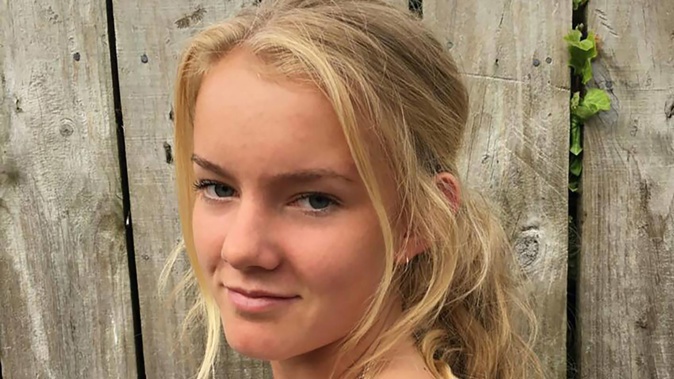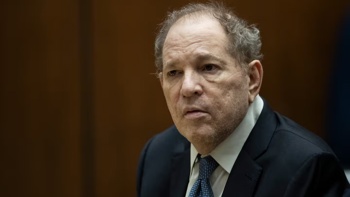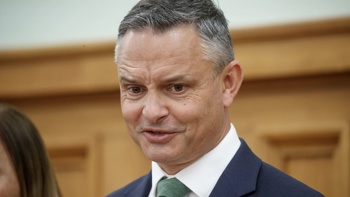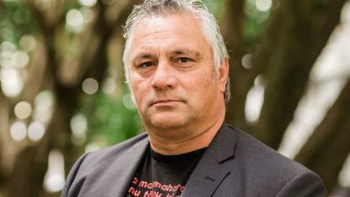
Warning: This article discusses suspected suicides and mental health problems and could be distressing for some people. If you need help, there are contact numbers below.
The Coroner's office has launched a joint inquiry into suspected suicides by three young women after initial investigations raised concerns about material they viewed on Instagram, the Herald can reveal.
Caroline Fausett, whose 17-year-old daughter Cassandra died in September 2019, was told by a case manager in an email three months after Cassandra's death that her inquest was being assigned to coroner Debra Bell in Auckland, who would be "undertaking joint inquiries into the deaths of three young women under similar circumstances, including Cassandra, that are possibly related to... Instagram".
The Herald has identified one of the other three women as Georgia, a 21-year-old from the South Island who is suspected of taking her own life in late 2019. Her mother asked that her surname not be used to protect the family's privacy. The identity of the third young woman is not known.
In an interview with the Herald, Fausett said she was told that police had discovered troubling social media material when they examined Cassandra's electronic devices soon after her death.
Fausett is not aware of exactly what suicide- or self-harm-related content her daughter viewed online but said Cassandra had a separate Instagram account that she used to post about her struggles with mental illness and to communicate with others who had similar experiences.
Cassandra had a complicated set of mental health problems, which included diagnoses of anxiety disorder, obsessive-compulsive disorder, anorexia and borderline personality disorder, and her mother does not believe that Cassandra's social media use was decisive in her death.
Because of lengthy delays in the coronial system and the complexity of the cases, it may still be a long time before the coroner's inquiry into the three deaths is concluded and the findings made public.
The joint inquest will add to a growing debate about protecting emotionally and mentally vulnerable children from a vast amount of potentially damaging content that is easily available online and difficult for parents to monitor.
In London last week, a coroner ruled that the negative effects of online content on sites such as Instagram contributed to the death of a British teenager, Molly Russell, in 2017. That decision received international attention and prompted a call by Prince William for more to be done to protect children on the internet.
- Lorde 'told off' after Instagram post reveals her vote for Auckland Mayor
- League star handed ban after 'reprehensible' Queen post
In 2021, the Wall Street Journal revealed internal research from Instagram's parent company showing that many of its teenage users said the platform made their mental health worse – by creating pressure to conform to stereotypes and to seek validation through likes and followers, and by amplifying peer conflicts, bullying and hate speech.
The impact of social media on young people's emotional wellbeing has come under scrutiny because of a significant rise in rates of depression, anxiety, self-harm, eating disorders and other major conditions across high-income countries in the past decade or so. The trend has been amplified by the Covid-19 pandemic.
Researchers say the links between social media use and mental ill-health may not be as is not as strong as initially thought, and for many young people the connections it provides are beneficial to their wellbeing. It is only one of several complex factors contributing to the crisis in youth mental health. However, it is also clear that for a minority of users, social media can be toxic to their mental wellbeing.
In Christchurch, Georgia's mother said she had not known her daughter viewed suicide-related material on social media and was only made aware of it by the police who investigated her daughter's death.
She was advised by the Coroner's office that Georgia's inquest was being transferred and combined with those of two other young women but has been given few details about the case.
The Coroner would not comment except to say that its inquiries into the deaths of Cassandra and Georgia are "open and active".
Concerns about the three young women's social media activity also drew the attention of the Suicide Prevention Office at the Ministry of Health, according to emails from officials at the time.
In December 2019, a week after being informed by the coroner that her daughter's case was being transferred, Fausett received an email from one of the ministry's top mental health officials bearing the subject line, "Instagram Concerns".
Arran Culver, who was the Ministry of Health's chief clinical adviser for mental health at the time, told Fausett: "I am supporting the Suicide Prevention Office with looking into how we can address potentially harmful social media content and support young people who may be at risk in relation to this content."
Culver is now acting deputy director-general at the ministry responsible for mental health strategy, regulation, and suicide prevention initiatives. He referred questions about the outcome of those conversations to the ministry's communications team.
The ministry responded with a written statement by Matthew Tukaki, director of the Suicide Prevention Office, which said the government is concerned about people "posting or engaging with harmful content" and is working with various organisations to develop social media guidance for young people, parents, and schools.
Tukaki said the prevention office has had discussions with Meta, Instagram's parent company - which also owns Facebook and WhatsApp - about suicide-related content, but he believed "it remains challenging to get harmful content removed from social media platforms".
A spokesperson for Meta said: "We do not allow content that encourages or promotes suicide or self-harm and we will remove it as soon as we are made aware of it, through a combination of in-app reporting and proactive technologies we use to detect it.
"We know that many people use Instagram in a positive way to get support or support others, so we do allow content that discusses suicide or self-harm for the purposes of recovery.
"Our policies do not allow graphic self-harm content... in any circumstances. We are committed to removing this type of content, but it will take time while we build new technology to find it and stop it being recommended. We are working together with youth and mental health experts on any changes, to help ensure we get it right."
Cassandra and Georgia's mothers said they were disturbed to learn their daughters may have been viewing harmful material online and want to know more about what they were looking at or sharing – but they also want urgent action to be taken to stop other vulnerable children or teens being exposed to dangerous content.
They were disappointed and frustrated that, three years after their daughters' deaths, there appeared to be no sign of their inquests being held soon.
"There is nothing I can do but wait," Fausett said. "I just hope they are doing the best job they can for Cassandra and the girls involved and that they have not been shelved.
"I understand that they do not want to upset parents unnecessarily, but not knowing if anything is happening for three years is worrying and depressing," she said.
"I know Covid hasn't helped, but it's a weight on your shoulders," Georgia's mother said. "The only thing that having all this time gives is more time to think about what went wrong and how it could have been different."
On Saturday, the Weekend Herald reported on Cassandra's "horrendous" two-year descent into serious mental illness. Based on hours of interviews with Cassandra's parents and a large volume of documents relating to Cassandra's life and treatment, it provided an unprecedented insight into the catastrophic impact the rising tide of mental distress is having on thousands of Kiwi families.
About this series
In April, the Herald and NZME launched a major editorial project, Great Minds, to examine the state of New Zealand's mental health and solutions for improving wellbeing in the aftermath of the Covid-19 pandemic. As part of this, Investigations editor Alex Spence examined the state of services for people with the most urgent and severe problems.
In the past eight months, we spoke to dozens of people at all levels of the system, including service users, their families, clinicians, researchers and officials; obtained data from more than 25 public bodies; and examined thousands of pages of government and health authority documents, many of which have not previously been made public.
This week, the Herald will publish several stories examining the worsening mental health of our children and young people, the government's policies in this area, and potential actions that could help to resolve the crisis.
Where to get help
If it is an emergency and you or someone else is at risk, call 111.
For counselling and support
Lifeline: Call 0800 543 354 or text 4357 (HELP)
Suicide Crisis Helpline: Call 0508 828 865 (0508 TAUTOKO)
Need to talk? Call or text 1737
Depression helpline: Call 0800 111 757 or text 4202
For children and young people
Youthline: Call 0800 376 633 or text 234
What's Up: Call 0800 942 8787 (11am to 11pm) or webchat (11am to 10.30pm)
For help with specific issues
Alcohol and Drug Helpline: Call 0800 787 797
Anxiety Helpline: Call 0800 269 4389 (0800 ANXIETY)
OutLine: Call 0800 688 5463 (0800 OUTLINE) (6pm-9pm)
Safe to talk (sexual harm): Call 0800 044 334 or text 4334
All services are free and available 24/7 unless otherwise specified.
For more information and support, talk to your local doctor, hauora, community mental health team, or counselling service. The Mental Health Foundation has more helplines and service contacts on its website.
Take your Radio, Podcasts and Music with you









